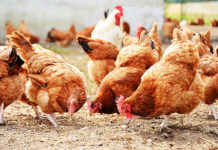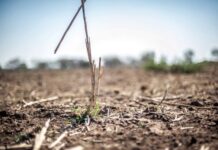
Food and Agriculture Organisation (FAO) has started an international programme to assess the condition of soils and guiding farmers in remedying soil problems through the Global Soil Doctors Programme.
According to FAO, the educational material and training modules from this programme helps farmers stay vigilant and responsive to soil health, a vital component of their livelihoods.
“Implemented by FAO as part of the Global Soil Partnership (GSP), the Soil Doctors programme provides a space for learning, interaction and dialogue between different actors concerned about the proper use and conservation of soils,” it said.
“In addition to sharing diagnostic tools for soil health and implementing practices that avoid soil degradation, this initiative enhances agricultural outputs and consequently, increases nutritious produce and farmers’ incomes.
“In collaboration with national partner institutions, extension services or academia, that work as promoters for the programme, FAO is helping to educate, train and support local farmers to manage their soil better.
Champion farmers enrolled and trained in the programme become “certified” as soil doctors, teaching others about these practices and helping their communities to safeguard this vital resource.
In Ouahigouya, a town in northeast Burkina Faso, Moussa Ouedraogo runs a vegetable farm with three workers.
He grows tomatoes, potatoes and green beans in crop rotation with maize and legumes.
Over the past several years, he noticed that the soil responds differently depending on their treatment.
“In the past, we didn’t need to apply fertiliser to produce,” he said.
“Instead, the soils were more fertile because they used mulching, a technique where they cover the soil with residual crops and grasses to protect it. Nowadays, they have animals, which are a valuable addition, but this means there are fewer residues to use as mulch.”
According to FAO, to maintain the soil’s ability to produce high quality, nutritious vegetables, they needed to find a new way of protecting soil fertility.
“Through the programme, Moussa learned that alternating crops and planting legumes is the solution for this. He continues to learn how to better protect his soils so that he can grow healthy and nutritious produce in his market garden,” FAO added.
Already implemented in nine countries, the Soil Doctors programme currently has 3 475 farmers participating with 403 already certified as Soil Doctors.
“As more promoters and farmers join this programme, the world is making greater strides to ensure sustainable soil management whilst simultaneously enhancing agricultural yields and incomes for farmers,” FAO said.







